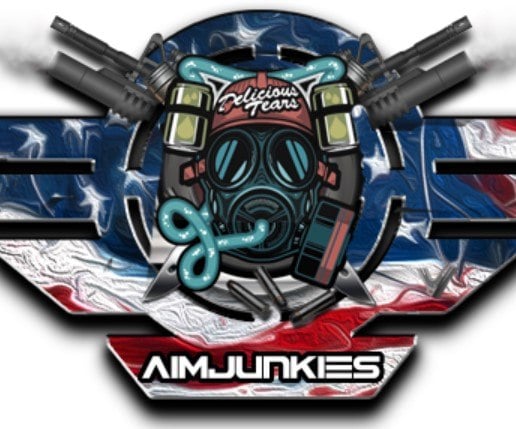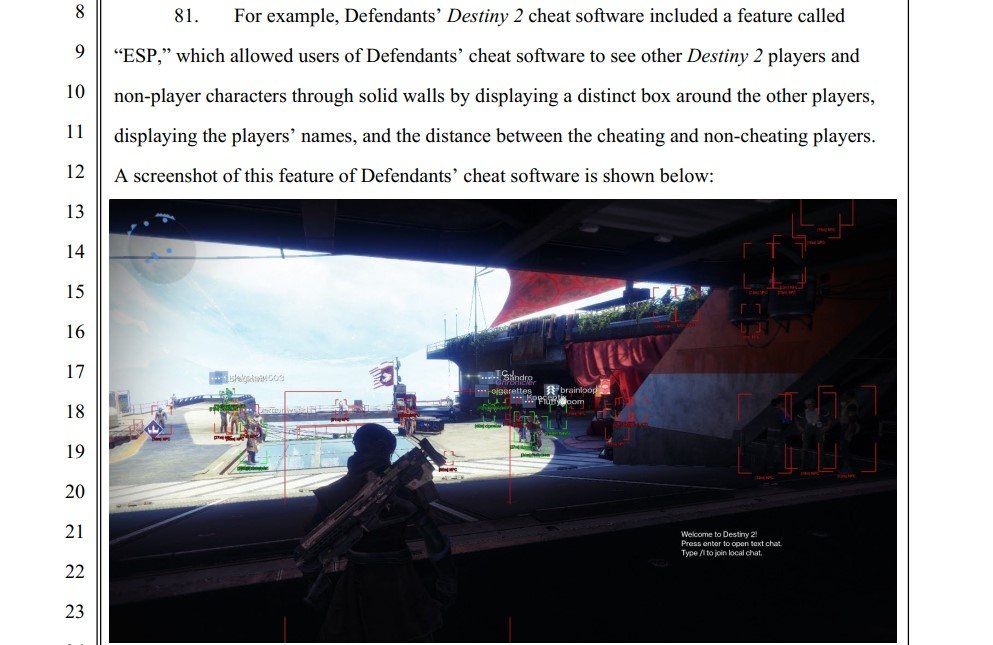-
chevron_right
Bungie Ask Court to Dismiss AimJunkies’ ‘False’ Hacking Claims
news.movim.eu / TorrentFreak · Friday, 7 October, 2022 - 14:54 · 4 minutes
 Over the past several years waves of copyright infringement lawsuits have targeted alleged cheaters and cheat makers.
Over the past several years waves of copyright infringement lawsuits have targeted alleged cheaters and cheat makers.
The legal battle between the American video game developer Bungie and AimJunkies.com is one of the most litigated cases thus far.
Last summer, Bungie filed a complaint at a federal court in Seattle, accusing AimJunkies of copyright and trademark infringement, among other things. The same accusations were also made against Phoenix Digital Group, the alleged creators of the Destiny 2 cheating software.
Both parties in this case are experts at high-level virtual combat. The court, however, is an entirely different playing field where the stakes are typically higher. Nonetheless, both sides have committed to winning this battle.
Over the past year, there have been a series of allegations back and forth. Bungie is eager to shut down the cheating operation, which it believes is clearly illegal. AimJunkies disagrees and has fired back on several occasions.
Hacking Countersuit
Two weeks ago, the cheat seller denied all of Bungie’s claims in court and fired back with a countersuit . Among other things, it accused the game company of accessing the computer of defendant James May without authorization, which AimJunkies equates to hacking.
AimJunkies pointed out that Bungie’s license agreement (LSLA) didn’t explicitly allow for this type of access at the time, and that it was updated at a later stage to permit this for anti-cheating purposes.
Yesterday, Bungie filed a motion to dismiss these counterclaims at the federal court in Seattle, Washington. According to the game company, the hacking allegations are legally deficient and factually unsupported.
False and Unsupported
The allegations are based on a spreadsheet produced by Bungie, showing file paths on the local computer of AimJunkies’ James May. However, Bungie notes that it was May who initiated these connections, not the other way around.
“May’s allegations regarding Bungie’s supposed ‘access’ of his computer are simply false,” Bungie’s motion to dismiss reads.
“The purported evidence May relies on, which Counterclaimants attach to their counterclaims, does not show Bungie downloading files from May’s computer; it shows metadata of processes on May’s computer that he connected to the Destiny 2 process, such as May’s ‘Reverse Engineering Tool[s]’.”

Even if Bungie had initiated the connection, the claim would be legally insufficient since May does not allege any significant harm or injury, which is required to make the case for hacking, Bungie adds.
In addition, Bungie argues that it would be allowed to access May’s computer under its privacy policy, which is referenced in the LSLA. This broadly worded policy allows the company to access the computers of Destiny 2 players under certain circumstances.
“May’s counterclaims do not include any factual allegations demonstrating that the data purportedly collected by Bungie falls outside of these categories of data he agreed to allow Bungie to collect,” Bungie writes.
Bungie Rebuts DMCA Claims
Aside from the hacking claims, AimJunkies also accused Bungie of violating the DMCA’s anti-circumvention provisions. The game company had to do so in order to access the loader software, the cheat seller said.
Bungie asks the court to dismiss this claim as well. There is no evidence that the company “circumvented” anything and, on top of that, AimJunkies doesn’t show that the loader is a protected copyrighted work, as the DMCA requires.
“Phoenix Digital alleges that Bungie accessed its ‘proprietary loader software,’ but Phoenix Digital does not allege that this loader software constitutes a copyrighted work.”
Unsupported, False and Damaging
According to Bungie, it’s crystal clear that the counterclaims should be dismissed. The game maker argues that they are unsupported, false, and intended to damage its reputation.
To illustrate this, the motion mentions that AimJunkies’ David Schaefer sent an email ( 2:05 ) to lawyer and YouTuber Richard Hoeg , showing an interesting take on the legal term “on information and belief.”
This phrase of often used in legal paperwork to illustrate that statements are based on secondhand information that the declarant believes is true. According to Schaefer, it’s code for “it’s not true but were going to throw this out there and see if it sticks with the judge.”

The characterization referred to Bungie’s use of this term. However, it also suggests that AimJunkies would use it similarly.
“Counterclaimants have apparently taken this erroneous definition to heart and acted in accordance, alleging claims with no basis to ‘get away with’, allegations that they know are ‘not true’ to ‘see if it sticks’.
“To state the obvious, Schaefer is mistaken; alleging facts ‘on information and belief’ does not justify or excuse making knowingly false allegations or ‘get[ting] away’ with libel (or slander),” Bungie adds.
Based on the above, Bungie asks the court to dismiss the counterclaim with prejudice. That would mean that AimJunkies would not get the chance to amend and refile them in the future.
—
A copy of Bungie’s full motion to dismiss, obtained by TorrentFreak, is available here (pdf)
From: TF , for the latest news on copyright battles, piracy and more.
 Last year,
Last year,


 Over the past several years, a wave of copyright infringement lawsuits has targeted alleged cheaters and cheat makers.
Over the past several years, a wave of copyright infringement lawsuits has targeted alleged cheaters and cheat makers.


